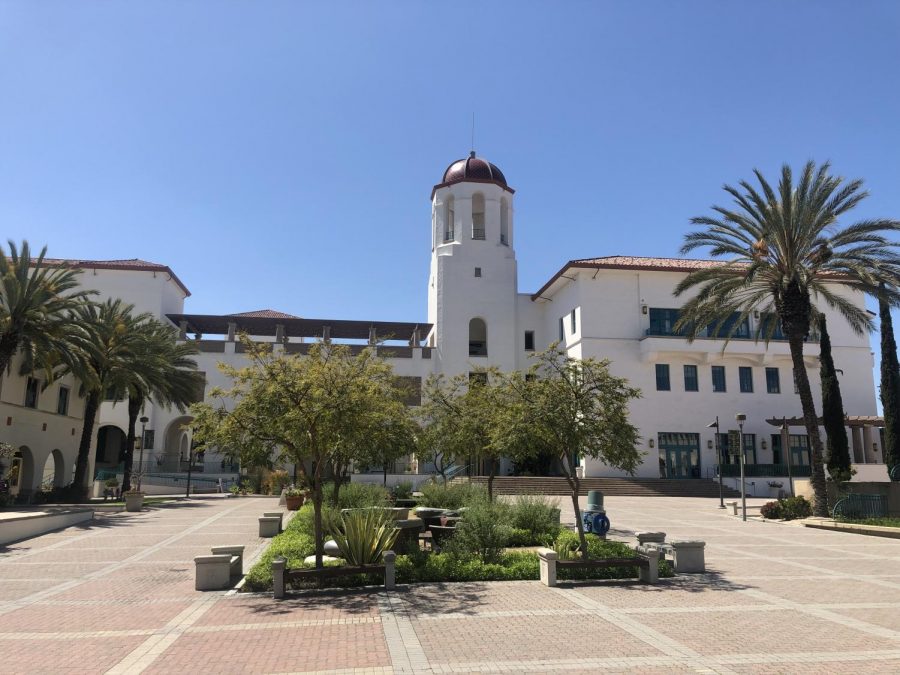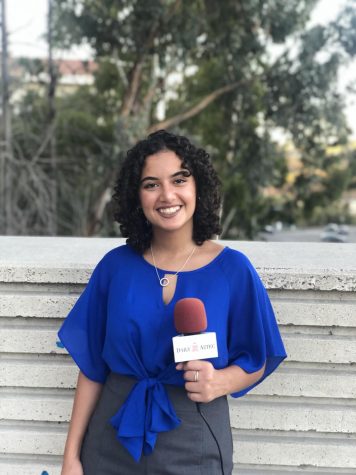The Weber Honors College at San Diego State University has attracted students who didn’t fully understand the work it requires and the types of benefits it brings.
Due to a successful increase in fundraising in 2015, the previous honors program recently became the official Weber Honors College. The college claims to foster an “intentional community of diverse, engaged students, a unique atmosphere of creativity, interdisciplinary conversation, intellectualism, and collegiality,” according to its website.
One of the biggest attractions to the Weber Honors College is the Honors Minor in Interdisciplinary Studies, which all members are required to earn. The minor consists of varied classes on a wide array of topics meant to challenge students to think through an interdisciplinary lens. Similar to other minors, the honors minor is six classes, or 16 units.
Many students, like accounting sophomore Mitchell Hiebert, were excited at the prospect of the Honors Minor and the Weber Honors College.
Hiebert recalls being accepted into SDSU and receiving an email not long after inviting him to apply for the Weber Honors College. He consulted his mom, and after some confusion about the program, they decided to go for it.
“At the end of the day, it can only help being in it,” Hiebert said. “And it would look good, so I decided to do it.”
But after a few semesters in the college, he began to realize its limitations for his career field.
“I have thought about dropping the minor,” Hiebert said. “I’m not sure if having a minor in Interdisciplinary Studies is more beneficial for me than another business minor to go along with my accounting major.”
Hiebert said he was even frustrated with the lack of spaces in the classes he wanted to take.
“They give you a set of options, and only a couple of them seem interesting really, so those are usually the first to go,” Hiebert said. “I think they ought to make those sections that are very popular have more of them, or make the classes bigger. There’s so many honors classes that not many people want to take, they’re kind of a waste to have.”
Hiebert said he feels like the Weber Honors College isn’t made for students like him, and wishes they were more clear up front on what the Honors Minor entails.
“When I got the email, I thought the Honors Minor was something prestigious, which maybe it is,” Hiebert said. “But you’re only going to enjoy it if you enjoy very obscure topics.”
It isn’t just incoming freshmen who are let down by aspects of the college, either. Postsecondary educational leadership graduate student Keely Kerr recalls her entrance into the college after already starting at SDSU.
“They kept emailing me, and I knew that it was like interdisciplinary studies so I could learn a little bit about everything, like multiple subjects, so that really interested me,” Kerr said.
Kerr herself was interested in a lot of the interdisciplinary classes she took. She said she liked learning about different fields of study, especially as a communications major. But after admitting there were some classes in the beginning and end of the program she took nothing away from, she conceded that the minor is not the most useful on a resume.
“You can’t really show a boss and be like ‘Hey, you should hire me because I took one class in this one thing.’ It’s something that doesn’t really make a lot of sense to people,” Kerr said.
However, Kerr said her biggest issue with the college was the requirement to study abroad.
“For it being an honors college that’s supposed to be merited on your intelligence, they’re limiting people from joining based on their financial ability to study abroad,” Kerr said.
She recalls how difficult it was for her to get the money needed to complete the mandatory study abroad trip, especially since she and her peers never got any scholarship money.
“It took me like a year and I had to work two jobs to raise the money to go for literally two weeks,” Kerr said.
Even after the trip, Kerr said she resents how unorganized the college was on her trip to Finland. From the college not providing any level of security as she walked miles alone in the dark from her dorm to eating areas, to her mentors forgetting to tell her she needed to buy her own sheets, she described the experience as “bonding by trauma.”
She ultimately enjoyed the trip, but wished the college provided more support to its students both financially and physically.








